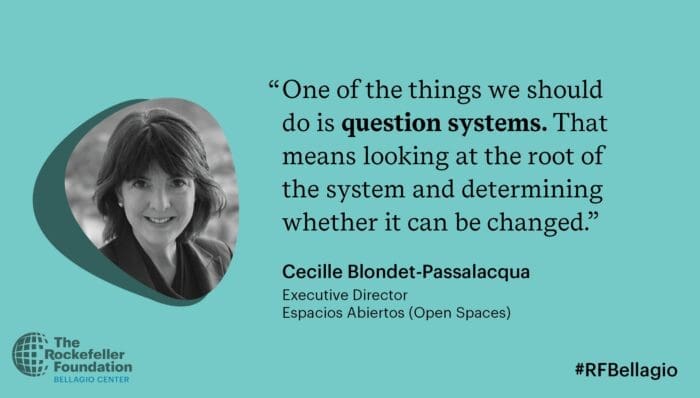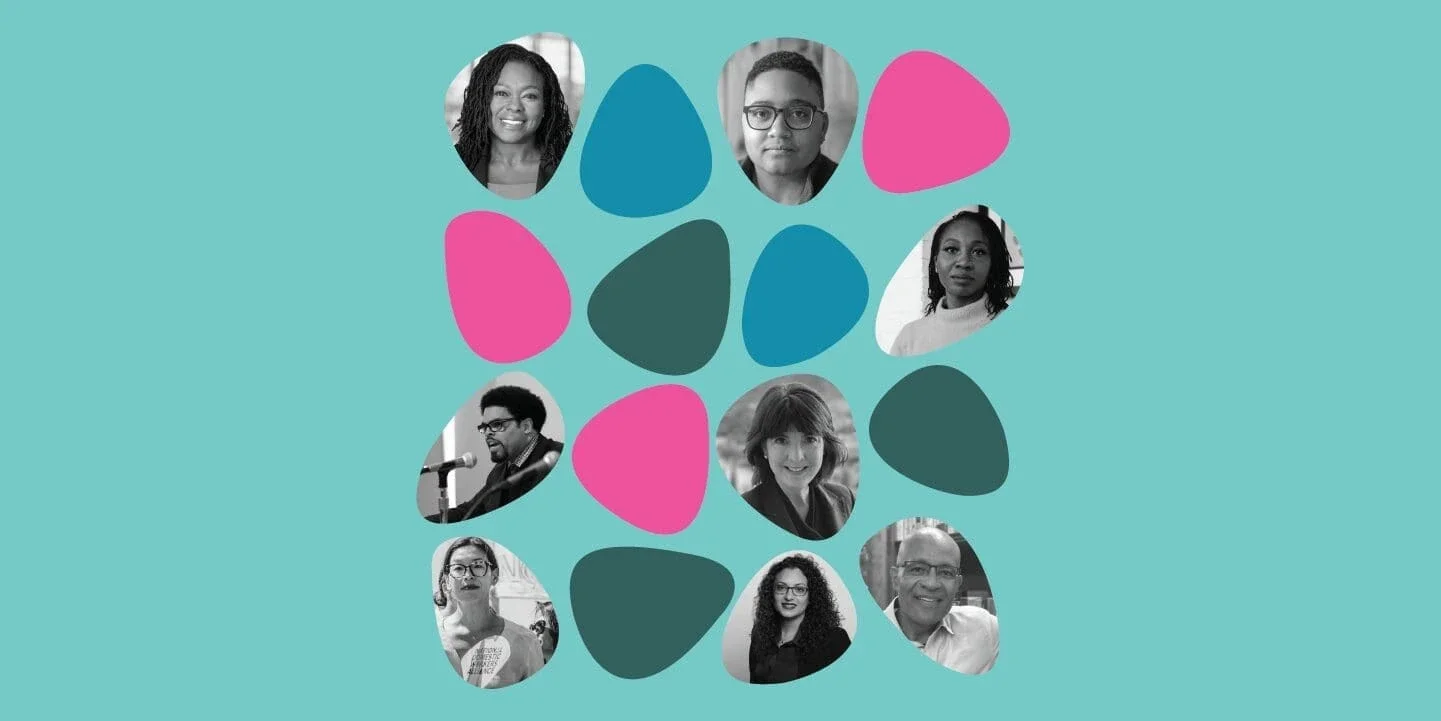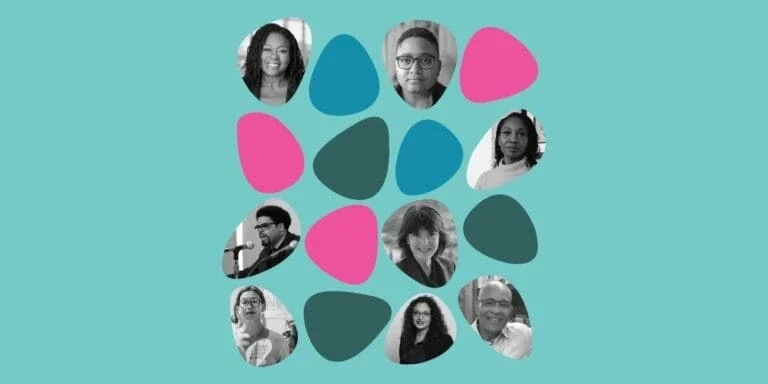Editor’s note: Cecille Blondet-Passalacqua is a leading proponent of fostering a more just and inclusive democracy in Puerto Rico. The Executive Director of the non-profit Espacios Abiertos (Open Spaces), she is focused on making a more just and equitable Puerto Rico through an open, transparent and democratic society.
She also worked in Benin during their democratic transition in the late 1990s.
She came to The Bellagio Center in November 2022 to advance a project focused on strengthening participatory democracy at the local level in Puerto Rico, re-imagining the 78 municipalities of the country as a laboratory of democratic participation.
How is your work helping to build a more racially and economically just society?
For the last five years, I’ve led a small but mighty team whose work is focused on the economic security of the people of Puerto Rico by addressing both the fiscal deficit and democratic deficit in the island through transparency, government accountability, and civic engagement. While we’ve done a lot of reports and analyses on the economic impact of debt restructuring in Puerto Rico, and many other aspects of the economy. I believe we need to do better at engaging ordinary citizens in the decision making process particularly at the local level, which is precisely the piece that I was working on at the Bellagio Center.
In Puerto Rico, 1.5 million U.S. citizens, mostly black and brown people, live under the federal poverty level. An outstanding figure when you consider it surpasses the single total population of 12 separate U.S. states. Current public policy and the government’s priorities need to change in order to effectively address the increasing economic insecurity of 44% of the residents of Puerto Rico.
Through our work we socialize, democratize, translate, fiscal and economic policy so people know about them, consider how they affect them, learn about best practices elsewhere and take action.
We believe that a more open society in Puerto Rico will be a more just and equitable society, where everyone, particularly low and middle income families could thrive. Where young people could envision a future full of opportunities.
What breakthroughs do you envision needing to happen by 2050 for us to arrive at the racially and economically just society that you envision?
Puerto Rico’s opportunity to self determine its political future currently resides in Congress, but while this is decided at the federal level, there are plenty of decisions that are within our reach. But people do not know how to participate – they do not know that there are solutions within our reach to the situations that we’re living through.
So my Bellagio Center residency project actually has to do with figuring out how we can engage more participation at the municipal level. How can we flex our democratic muscle and protect the democratic institutions closest to our communities. Particularly at a moment in which local elected representation could be in peril, as the Fiscal Oversight Board imposed by Congress hints at the possibility of reducing municipalities for the sake of saving.
One of the breakthroughs we need to see before 2050 is to make sure that we get more youth involvement in the democratic processes in Puerto Rico, and that the youth also have economic opportunities to stay on the island or return.
The things that are key to democracy are youth involvement, stronger civic engagement and trust in government institutions. And sometimes we think of democracy as separate from the economy, but the two go together: a strong democratic base is key.
We all have an opportunity to shape our systems. I think it’s very important for us to stop and see if society is not working the way it should be. One of the things we should do is question systems. That means looking at the root of the system and trying to find out whether that can be changed.
And I don’t mean in an anarchic way. I think change can come through conversation. It doesn’t have to come with force. Those are processes that we have experienced here on the island, when in the summer of 2019 after 11 days of protests demanding the resignation of an elected governor, resulted in his resignation – a first- and a peaceful transition of the executive power.
So it’s possible to achieve change peacefully.

What keeps you up at night and what makes you feel optimistic about the future?
What keeps me up at night are the job losses, and that people continue to leave the island. But I think it also keeps me optimistic about the future of democracy.
So, finding an answer keeps me up at night. Searching for it keeps me optimistic.
Learn More: Discover the work of Espacios Abiertos and some of its tools: the Fiscal Observatory and QuienMeRepresenta.

